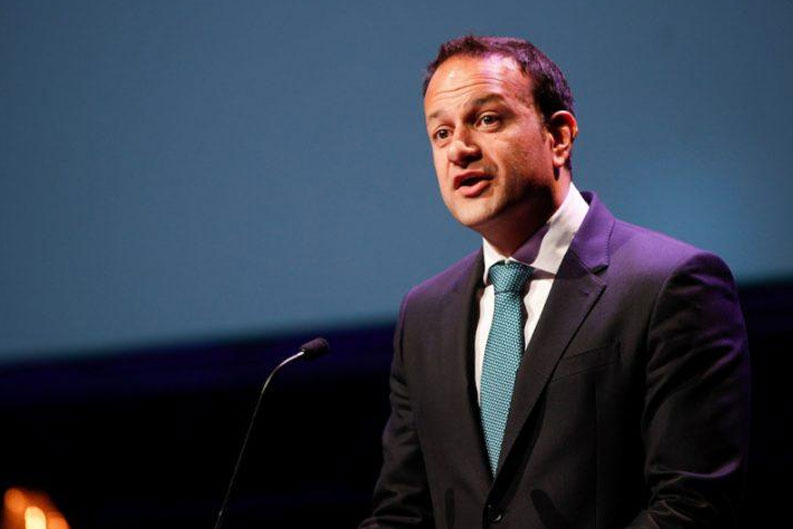
11 disruptive technology projects bag €40m in Government funding by Vish Gain
The Disruptive Technologies Innovation Fund is backing 11 Irish projects that will see researchers and industry work together on innovation in key areas.
Up to €40m in Government funding is going to 11 research-based projects in Ireland disrupting fields such as health and wellbeing, advanced robotics and machine learning.
This comes from the Disruptive Technologies Innovation Fund (DTIF), which is a €500m fund managed by the Government with administrative support from Enterprise Ireland. It was first established under the National Development Plan in 2018.
Now in its fourth round, the DTIF aims to drive collaboration between Ireland’s researchers and industry, and develop disruptive technologies for eventual commercial application.
“Now more than ever we should look to the future and embrace innovation as a means of building our capacity to conquer the challenges we face,” said Tánaiste Leo Varadkar, TD, announcing the funding today (15 November).
“Projects announced today will benefit patients with heart failure, make online space safer for children and reduce greenhouse gases, paving the way for Ireland’s journey to a carbon neutral society, to name a few.
“These and other successful projects have identified emerging areas of opportunity in future markets to help solve societal challenges by building on our regional economic and research strengths.”
The 11 successful projects involve around 40 partners, more than half of which are SMEs.
Of the €275m spend in DTIF funding to date, 57pc has been awarded to project partners outside of Dublin – contributing to economic growth in all regions of Ireland.
“The investment offered through DTIF encourages Irish companies of all sizes, multinational companies and academic institutions to explore new opportunities by encouraging them to be more ambitious and pursue strategic research opportunities,” said Enterprise Ireland CEO Leo Clancy.
“It helps clients target investment in innovations in areas of major importance, such as future medical technologies and digitalisation.”
The 11 projects to receive the latest DTIF funding are as follows:
- VascuSense: A non-invasive device that aims to treat patients with chronic total occlusion, or the complete blockages of coronary arteries that lead to critical limb ischemia
- Heallntel: A project that aims to capture multifaceted data to enable improvements to products and protocols associated with measuring and monitoring compression therapy and wound care
- Lilac-IntelliSense: A software system that models a prognosis for chemotherapy-induced peripheral neuropathy based on clinically obtained observations and smart bioinformatics algorithms
- Xbat+: A project that aims to disrupt the global recycling market by identifying potential hazards and risks associated with the waste electrical and electronic equipment recycling sector
- A DP stent that aims to replace conventional stents by eliminating pre-stent procedures and mitigating common risks
- BioBlate: This project aims to disrupt the current treatment of diabetic foot ulcers and other mixed tissue infections by developing a non-invasive surgical device that delivers a high amplitude of electrical pulses to remove infected muscle and bone tissues
- Thorax: An AI-driven patient monitoring platform combined with a diagnostic test capable of identifying patients at high risk of progression of acute diseases such as sepsis or pneumonia
- A project involving RCSI aims to develop a miniature smart pump for the treatment of heart failure with preserved ejection fraction, which limits the need for open-heart surgery
- Cilter: An AI-driven parental control concept that aims to modify a phone at the kernel level to access all incoming and outgoing data and encrypt messaging apps
- EncOVac: This project aims to develop orally self-administered vaccine technology delivered to intestinal mucosa to better protect against pathogens
- Risolve: Pitched as a safe and effective personalised therapy that will disrupt the overactive bladder treatment market using an innovative artificial intelligence-based digital platform
We don't keep any information that could identify someone.
Need help or
would like to
talk to someone?
- If you or your child feels the need to talk to anyone about thoughts, emotions, or anything that may be associated with these issues, please consider him/her/they calling Childline on 1800 66 66 66 or the ISPCC special line 1800 400 100.
- If you would like to talk to a professional (someone whose job it is to help children and adults), please contact the ISPCC’s Support Line service can be contacted by email to parentingsupport@ispcc.ie or between 9am – 1pm Monday – Friday by calling 01 522 4300.
- If you would like to report the incident you anonymously described in the form, you can do so by contacting TUSLA, Child Protection Agency.











